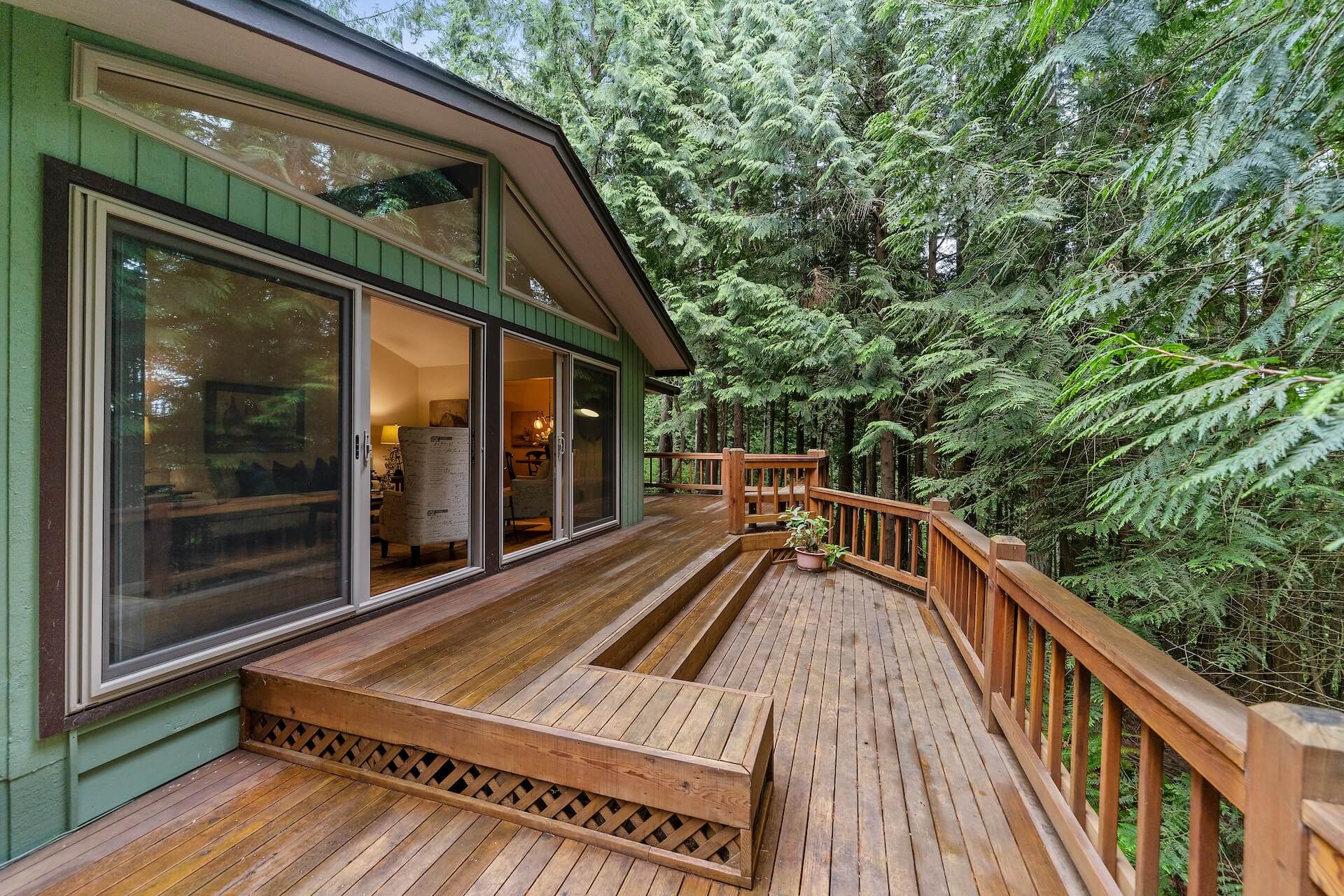The Ultimate Guide to Choosing the Best Deck Materials
Choosing the right materials for a deck can make a big difference in both appearance and function. The best deck materials will not only enhance the look of outdoor spaces but also suit the lifestyle and needs of the homeowners. Understanding the various options available is key to making an informed decision.
From wood to composite, each material has its own advantages and disadvantages. The right choice depends on factors like climate, maintenance preferences, and budget. Homeowners will benefit from evaluating their outdoor space and how they plan to use it before making a final decision.
Whether upgrading an old deck or building a new one, selecting the right materials is essential. Different options can provide unique looks and functionalities that fit specific lifestyles. This guide aims to help readers navigate these choices for a successful deck project.

Key Takeaways
- Evaluate personal needs and how the outdoor space will be used.
- Compare different materials for maintenance and durability.
- Plan a budget to meet all project requirements.
Evaluating Your Outdoor Space and Lifestyle Needs
Choosing the right deck materials involves understanding both the physical space and how it will be used. This means considering the local climate and how often the space will be used for leisure or gatherings.
Understanding Your Climate
The climate plays a big role in choosing deck materials. For example, areas with heavy rainfall may require wood that resists moisture. On the other hand, sunny regions may need materials that withstand UV rays to avoid fading.
- Temperature: Extreme heat or cold can affect materials differently.
- Rainfall: High moisture levels can lead to mold growth on certain woods.
- Snow: Heavy snow can weigh down some materials, which can be a concern for decks.
Researching local weather patterns helps in selecting the right material. It's important to match the deck's durability with the local conditions.
Considering Your Lifestyle and Usage
Lifestyle impacts the choice of deck material significantly. A family that hosts frequent parties may prioritize durability and ease of maintenance. In contrast, a quieter household might choose aesthetic appeal over toughness.
Key questions to ask:
- How often will the deck be used?
- What types of activities will take place? (e.g., barbecues, lounging)
- Is safety a concern for children or pets?
Materials like composite decking can offer durability while maintaining visual appeal. If low maintenance is a priority, consider materials that don't require frequent sealing or painting. Knowing how the space will serve its users helps in making the best choice.
Deck Material Options and Characteristics
Choosing the right deck material is key to creating an outdoor space that fits both style and function. There are several popular options available, each with unique traits that can influence a buyer's decision.
Wood: Classic Appeal and Varieties
Wood offers a traditional look that many homeowners love. Common choices include cedar, redwood, and pressure-treated pine.
- Cedar and Redwood: Both of these woods are naturally resistant to decay and insects. They have beautiful colors and grain patterns but require regular maintenance to keep their appearance.
- Pressure-Treated Pine: This option is more affordable and lasts longer due to the chemicals used to treat it. However, it might splinter and requires sealing every couple of years.
Wood can be stained or painted, enhancing its appearance. While it has a classic charm, it may need more upkeep compared to other materials.
Composite: Durability and Maintenance
Composite decking is made from a mix of wood fibers and plastic. This mixture gives it a strong, long-lasting structure.
- Low Maintenance: It resists fading, stain, and moisture. Unlike wood, it does not splinter, making it safe for bare feet.
- Variety of Colors: Composite materials come in different colors and grain styles, mimicking wood's look without the upkeep.
While composite is more expensive initially, it pays off in reduced maintenance. Many deck builders recommend composite for busy lifestyles.
Plastic: Affordability and Weather Resistance
Plastic decking, often made from recycled materials, is a cost-effective choice. One significant advantage is its weather resistance.
- No Rot or Mold: It does not attract mold or suffer from rot, making it ideal for wet climates.
- Lightweight and Easy to Work With: Deck builders find plastic easy to install, as it is much lighter than wood.
While it may lack the classic look of wooden decks, plastic options come in varied styles. Buyers looking for longevity often find this material appealing.
Aluminum: Modern Look and Longevity
Aluminum decking is a modern choice that offers many benefits.
- Lightweight and Durable: It can withstand the elements without warping or cracking. This makes it suitable for places with extreme weather conditions.
- Low Maintenance: Aluminum does not need staining or painting. A simple cleaning is all that's required.
A sleek, contemporary design appeals to many homeowners. Its longevity is a strong selling point for those who want a lasting deck.
Installation Considerations and Maintenance
Choosing the right deck material requires attention to installation and long-term care. These factors can significantly impact the deck's performance and lifespan.
Professional Installation vs. DIY Projects
Deciding between hiring a professional or doing it yourself is crucial. Professional installation ensures that the deck is built correctly. Experienced deck builders can handle complex designs and local regulations. They also have access to specialized tools, reducing the chances of mistakes.
On the other hand, DIY projects can save money. Homeowners can take pride in their work and customize the deck to their liking. However, it requires time, effort, and some skill. Mistakes can lead to costly repairs later on. Assessing individual skills and available resources is essential when choosing between the two options.
Long-Term Care and Upkeep
Maintaining a deck is vital for its longevity. Different materials require different levels of care. Wood decks often need regular sealing, staining, or painting to prevent rot and fading. This can mean annual upkeep to keep the deck looking good.
Composite materials, while lower in maintenance, still require cleaning to avoid mold and mildew. A simple wash with soap and water can help maintain appearance. Regular inspections for loose boards and rust can prevent bigger issues.
Tips for maintenance:
- Clean debris regularly.
- Inspect for signs of wear.
- Refinish wood surfaces every few years.
Budgeting for maintenance costs is also important over the life of the deck. Keeping up with these tasks helps ensure a safe and attractive outdoor space for years to come.
Budgeting for Your Deck Project
Creating a budget for a deck project is essential. It helps a person understand costs and keeps spending in check.
Cost Factors to Consider:
- Materials: Different materials come with different prices. For example, wood can be less expensive than composite options.
- Labor: Hiring professionals can add to total costs. DIY projects may save money but can take more time.
- Design Complexity: Unique designs may increase costs. More features, like railings or steps, add to the total.

Estimated Costs per Square Foot:
| Material | Estimated Cost per Square Foot |
|---|---|
| Pressure-Treated | $15 - $25 |
| Cedar | $20 - $30 |
| Composite | $25 - $50 |
| PVC | $30 - $60 |
Budget Tips:
- Plan Ahead: Set a budget early on. This helps avoid surprises later.
- Get Quotes: Contact several contractors for price estimates if hiring.
- Allow for Extras: Set aside 10-20% of the budget for unexpected expenses.
Lifestyle Considerations:
Consider how the deck will be used. Families might need durable materials, while entertainers may want stylish options. Budgeting wisely ensures the deck meets lifestyle needs without breaking the bank.